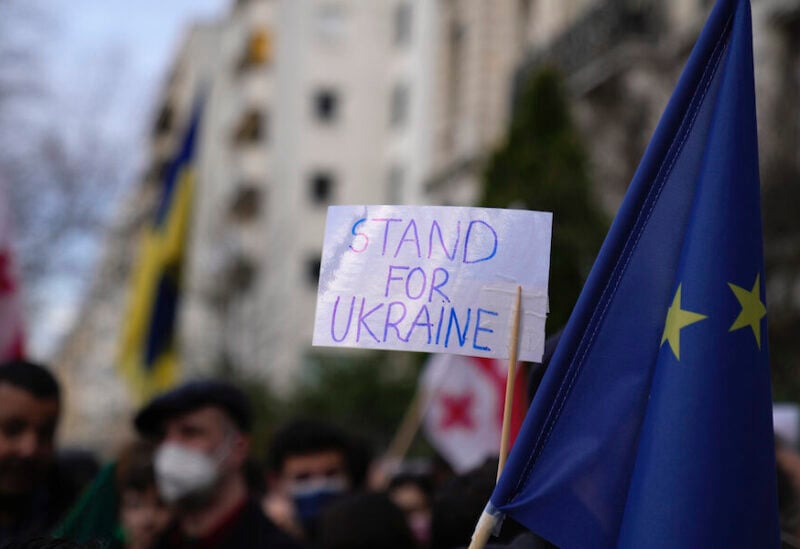
EU UKRAINE
Senior EU officials stated on Thursday that the EU will impose further sanctions on Russia, blocking its assets, limiting its banks’ access to European financial markets, and targeting “Kremlin interests” in response to its invasion of Ukraine.
An emergency meeting beginning at 1900 GMT will also debate awarding Ukraine EU candidate status, according to Lithuanian President Gitanas Nauseda, a measure Kyiv has long advocated for, though it may not be approved by all EU leaders.
On Thursday, Russian forces launched missiles at Ukrainian towns, including the capital Kyiv, and landed soldiers on the country’s Black and Azov Sea shores, in Europe’s worst state-on-state offensive since World War II.
The EU said it had summoned Russia’s ambassador to Brussels to condemn “the unprovoked, unjustified invasion”, warning him that a new “hard-hitting” package of sanctions would be decided at the summit in coordination with its transatlantic partners.
“We condemn this barbaric attack and the cynical arguments to justify it,” European Commission chief Ursula von der Leyen said. “It is President Putin who is bringing war back to Europe.”
“With this package, we will target strategic sectors of the Russian economy by blocking their access to technologies and markets that are key to Russia,” she added. “We will weaken Russia’s economic base and its capacity to modernize.”
Russian assets in the EU would also be frozen and Russian banks’ access to Europe’s financial markets would be stopped.
However, cutting Russia off the SWIFT global interbank payments system – one of the toughest non-military sanctions the West could impose – is unlikely to be agreed at this stage, several EU sources said.
The EU approved a first round of sanctions on Wednesday, including blacklisting Russian politicians and curbing trade between the EU and two breakaway regions of eastern Ukraine whose independence Moscow has recognized.
The new measures, to be discussed at the evening summit of national EU leaders, will be “the harshest package of sanctions we have ever implemented”, said the bloc’s foreign policy chief, Josep Borrell.
“This is among the darkest hours for Europe since the end of World War Two… Russia’s leadership will face unprecedented isolation.”
The EU will also prepare a new aid package for Ukraine, he added.
“We will also be active in supporting evacuation operations, including our own staff in zones affected by this Russian attack,” Borrell said.